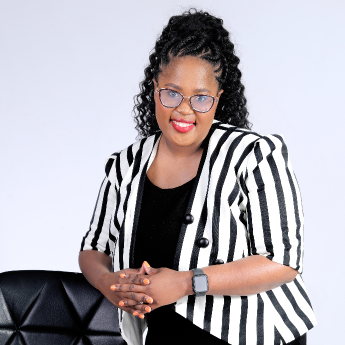As a young girl growing up in Mthatha in the Eastern Cape, Bongiwe Beja-Ntsiko got an early taste of data capturing and the importance of keeping good records. “My parents were medical doctors, and I grew up working at the surgery during the school holidays where I learned about accounting and how to use Excel,” she recalls.
It was an experience that stayed with her – the power of financial tools and data to manage and grow businesses, and to come up with solutions that will address the gaps in our economy, has become something of a life passion. “Too often we see that we don’t have enough data and specifically, research on development in Africa – what works and what does not – which underpins poor outcomes in so many initiatives. We also don’t have enough skilled people working in these areas” explains Bongiwe.
At the World Economic Forum’s 2018 Annual Meeting of the New Champions held in Tianjin, China, she saw a graphic showing ease of access to internet across the globe – with the African continent almost completely dark. “That image stays with me”, she says, “We have to give light to Africa.”
For her, the way to do this is through gathering the data and championing the research into how the biggest barriers to the digital transformation in Africa can be overcome. As well as through education – Bongiwe is always encouraging others to study to build their skills in this field and to contribute to research, especially when it comes to finding ways to finance small and medium businesses and entrepreneurs. And she has followed her own advice. She studied economics and finance at the University of Cape Town (UCT), followed by an MCom in Development Finance at the UCT Graduate School of Business (UCT GSB), from which she graduated cum laude in 2018. She then went on to qualify as a Chartered Development Finance Analyst, becoming a member of the Chartered Institute of Development Finance (CIDEF).
Her current position as Head of Partnerships for The Student Hub, which provides leading TVET (Technical and Vocational Education and Training) colleges with the infrastructure to offer optimised online teaching and learning, combines her love of technology with her passion for education. Bongiwe says she hopes to use what she knows to provide fresh opportunities to South Africa’s many job seekers. Although the country has one of the highest unemployment rates in the world – currently at 66,5% – it has also been slow to embrace online learning opportunities to boost skills development. Earlier in 2022, the World Economic Forum published a report showing the growth in online learning globally, but South Africa was not on the growing list of African countries embracing online learning, which means, she says, that country is an untapped market with huge potential.
“I really think we need a reskilling of the workforce in general,” says Bongiwe. “Seeing as the digital revolution is upon us, we need to give young people the skills to participate. We know there is a huge demand for information and technology skills, but also for business management, communication and digital marketing courses.
Though rapidly scaling, The Student Hub remain focused on their mission to become a key connector for the aspiring youth, through providing them with access to credible education and connecting them to employment opportunities. In essence, the Student Hub is creating an ecosystem of quality educational content that meets the growing skills gap, and partnering with employers who share in its vision to provide opportunity to all.
Bongiwe says she is excited to be a part of the educational journey for millions of South Africans that has the potential to shape a more prosperous and resilient future for the continent. “We need more Africans leading the narrative while developing Africa.”
























































































































